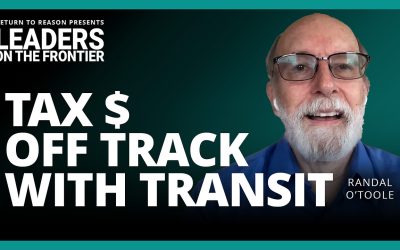Some people in Quebec envy Alberta, which has fully eliminated its debt and enjoys the lowest tax rates in Canada, with no provincial income tax. Alberta has substantial oil and gas resources. Quebec, for its part, has renewable and low-cost hydraulic resources.
Alberta has left the exploitation of its natural resources to the private sector and pays for oil at market prices. If oil prices rise sharply, Albertans, like everyone else in Canada, must agree to pay more for their gasoline. Alberta receives high royalties from the private companies that handle the exploitation of its energy resources. The Alberta government does not, however, seek to set prices for gasoline.
Quebec has chosen a different strategy: With few exceptions, it is the government, through Hydro-Québec, that handles the exploitation of our hydroelectric resources. Hydro-Québec recently had to start paying a royalty for the use of water, but this is far from the level paid in Alberta for oil resources.
Following an extended rate freeze, HydroQuébec now can ask the Régie de l’énergie for approval to raise rates, based on increases in its costs. In the last few years, however, electricity rates have risen far more slowly than the prices of oil products. This is why Quebec residents pay much less than market value for electricity. Residential electricity rates in Toronto are 75% higher than Quebec rates. In New York, the rates are three times as high.
Quebecers own acompany with a medium-term profit potential higher than that of any company listed on the Toronto Stock Exchange. How much would Hydro-Québec be worth after the rate increase suggested below? This is a fundamental issue that our society must analyze and debate. The situation has changed enormously in the last 20 years. Deregulation of the North American energy market has raised Hydro-Québec’s intrinsic value quite considerably.
Excluding extraordinary items, HydroQuébec’s 2006 profit was $2.8-billion. Raising electricity rates by 4¢ a kilowatt-hour (kWh) would produce the same average rate paid by Toronto residents. Such a rise would increase Hydro-Québec’s profit by about $7billion a year. This is based on the realistic assumption that the billions of kWh not consumed by Quebecers after a rate increase would easily find buyers in export markets.
As a state corporation, Hydro-Québec pays no tax on its profits. It would obviously be subject to this tax if it became a publicly traded company. If it paid one-third of its profit in tax, its net profit, as a private company, would be $6.5-billion following the suggested rate increase. Valuations of energy-producing companies listed on the Toronto Stock Exchange lead us to conclude that Hydro-Québec’s worth would exceed $130-billion.
Quebec has an opportunity to get rid of its debt quickly through more effective exploitation of its hydraulic wealth. On March 31, 2006, Quebec’s debt stood at $122.6-billion. Raising rates by 4¢ per kWh before heading to the stock market would enable us to eliminate Quebec’s debt entirely. A debt-free Quebec would save $7.6billion a year in debt service. This saving would fall to about $5.5-billion a year after taking account of the reduced contribution from Hydro-Québec to public revenues. This amount would still allow for income tax cuts of 33%. Cuts of this magnitude would stimulate Quebec’s economic growth enormously, since we would then have a highly competitive tax environment.
Hydro-Québec need not be listed on the stock market in a single block. To minimize the impact of the proposed rate increase on the economy and on Quebec consumers, this rise should be staggered over several years. Since Hydro-Québec’s structure has already been divided into four autonomous entities (Production, TransÉnergie, Distribution and Équipement), these divisions could be the basis for a gradual listing of the company on the Toronto Stock Exchange. The first division to be privatized would be Hydro-Québec Distribution. Once this is done, it would be easy to adjust rates based on the costs incurred in obtaining electricity, since a private company must operate at a profit.
In a second phase, the assets of HydroQuébec Production could be spun off into several groups that would be sold in turn to the already privatized Hydro-Québec Distribution. This sale would be done according to predetermined financial parameters that would reflect the real value of the assets being sold. Quebec electricity rates, which would be based on costs, would gradually move closer to market costs as successive privatizations occurred. This way of proceeding would have the advantage of spreading the rate increase over several years without selling assets at a discount, as would be the case if the entire sale took place in the short term. This would also allow for a harmonious transition between a state corporation and a joint stock company listed on the exchange.
Many observers are concerned about the effects of the Quebec population’s rapid ageing on our ability to maintain our universal health care system, given that Quebec residents are already among the most heavily taxed and most heavily indebted people in North America. In exchange for what truly amounts to a reasonable hike in electricity rates, Quebec could enjoy a highly competitive tax environment without having to sacrifice its social programs.
Claude Garcia is former president of Standard Life and a former assistant deputy minister at the Quebec Department of Social Affairs.


